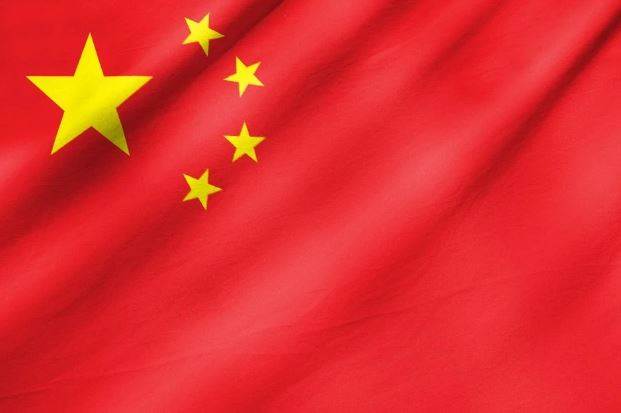
21-May-2020
China Is The Spoiler Of Western Balkans
The Kosovo-Serbia discourse has been occurring now and again since 2011. Induced by the European Union, the exchange is a progression of arrangements planned for normalizing relations between the two nations. The Trump organization has taken a distinct fascination and dynamic job in the exchange, and it named Richard Grenell as unique agent to the dealings in October.
The dealings to a great extent occur between Grenell, Kosovar President Hashim Thaçi, and Serbian President Aleksandar Vučić. They have been buried in debate not just for their job in the ongoing breakdown of Kosovo's administration, yet additionally for the way that a regional trade where Kosovo would trade a portion of its ethnic Serbian-dominant part districts for a portion of Serbia's ethnic Albanian-lion's share ones is by and large firmly considered.
While the United States and European Union are the two most dynamic entertainers from outside the Western Balkans in this procedure, China has been eminently missing.
This is to some degree astounding, taking into account that in the course of recent years China has risen as one of the Western Balkans' most significant outside on-screen characters. Beijing has put intensely in the district as a major aspect of the Belt and Road Initiative and has consolidated a large portion of its nations into the 17+1 configuration.
The Western Balkans have become a point of convergence for China's BRI interest in Europe. China sees the locale as a key course to ship products delivered in from the port in Piraeus, of which China's COSCO Shipping Corp. Ltd. is greater part proprietor, to the EU normal market. While China has been putting a lot of capital in a large portion of the nations in the district, the key part of its Balkans procedure has been its relationship with Serbia. China's generally close ties with Serbia originate before its dynamic job in the district all in all. In 2009, previous Serbian President Boris Tadić announced China to be the "fourth column" of Serbian international strategy, alongside the United States, the European Union, and Russia.
The Sino-Serbian relationship has just developed nearer from that point forward. This closeness was as of late exemplified by the display that welcomed Chinese clinical guide and laborers when they showed up in Belgrade to assist Serbia with its reaction to the COVID-19 pandemic. A bulletin was later positioned in the focal point of Belgrade, bearing an image of Chinese President Xi Jinping and the expression, written in both Serbian and Chinese, "Thank you, sibling Xi."
This relationship has additionally been fortified by a mutual strategy of non-acknowledgment towards Kosovo's freedom - Serbia despite everything believes Kosovo to be one of its areas. In 2008, Kosovo pronounced its freedom from Serbia.
The declaration came an entire decade after the finish of the Yugoslav Wars, during which Serbian soldiers carried out barbarities against Kosovar Albanians. Serbia's purposes behind not perceiving Kosovo's freedom, other than the undeniable want to not lose an area, incorporate its denialism of war violations submitted by Serbian soldiers during the Yugoslav Wars and the significant job that the Battle of Kosovo (1389) plays in the Serbian patriot folklore.
READ HERE MORE : Israel Defense Minister Benny Gantz Planning For Being Next Head Of The State
There are two inspirations driving China's non-acknowledgment of Kosovar autonomy. While this strategy may keep China from putting resources into Kosovo through the BRI or 17+1 arrangement, China seems to see this as a tradeoff worth creation so as to additionally charm itself to the Serbian government. China likewise fears that acknowledgment of Kosovo's autonomy would start a trend for the regions it sees as its own rebel territories, for example, Taiwan.
Advantageously for China, a non-acknowledgment approach towards Kosovar autonomy has had the option to accomplish two international strategy objectives, attracting it closer to its most significant partner in the Western Balkans while at the same time safeguarding its own regional honesty as a substitute. Be that as it may, an effectively arranged understanding among Kosovo and Serbia could make a strain between these synchronized interests.
Some portion of the European Union's inspiration for starting these dealings, in any case, was to accomplish an approach of shared acknowledgment between the two nations, as Serbia is a possibility for EU enrollment and Kosovo a potential one. No nation can turn into an EU part without perceiving the regional power of each other part state. This implies if a Kosovo-Serbia bargain is effectively arranged and consistent with its unique crucial, Serbia will end up perceiving Kosovo as a sovereign and autonomous state.
Such a result would convolute China's Balkans technique and power it to consider the ramifications of its Kosovo arrangement such that it has never needed to. On the off chance that this happens and China decides to keep on not perceive Kosovo's freedom, at that point it dangers distancing its most indispensable accomplice in a district center to its geostrategic aspirations.
Then again, on the off chance that it turns around its strategy and perceives Kosovo, at that point those with hostile to Beijing and master freedom supposition in places like Taiwan might be encouraged. From China's point of view, the perfect result is for the Kosovo-Serbia exchange to self-destruct and business as usual to endure.

Content Writer/Journalist
I am a content writter !
Join Our Newsletter
Subscribe to our newsletter to receive emails about new views posts, releases and updates.
Copyright 2010 - 2026 MindStick Software Pvt. Ltd. All Rights Reserved Privacy Policy | Terms & Conditions | Cookie Policy